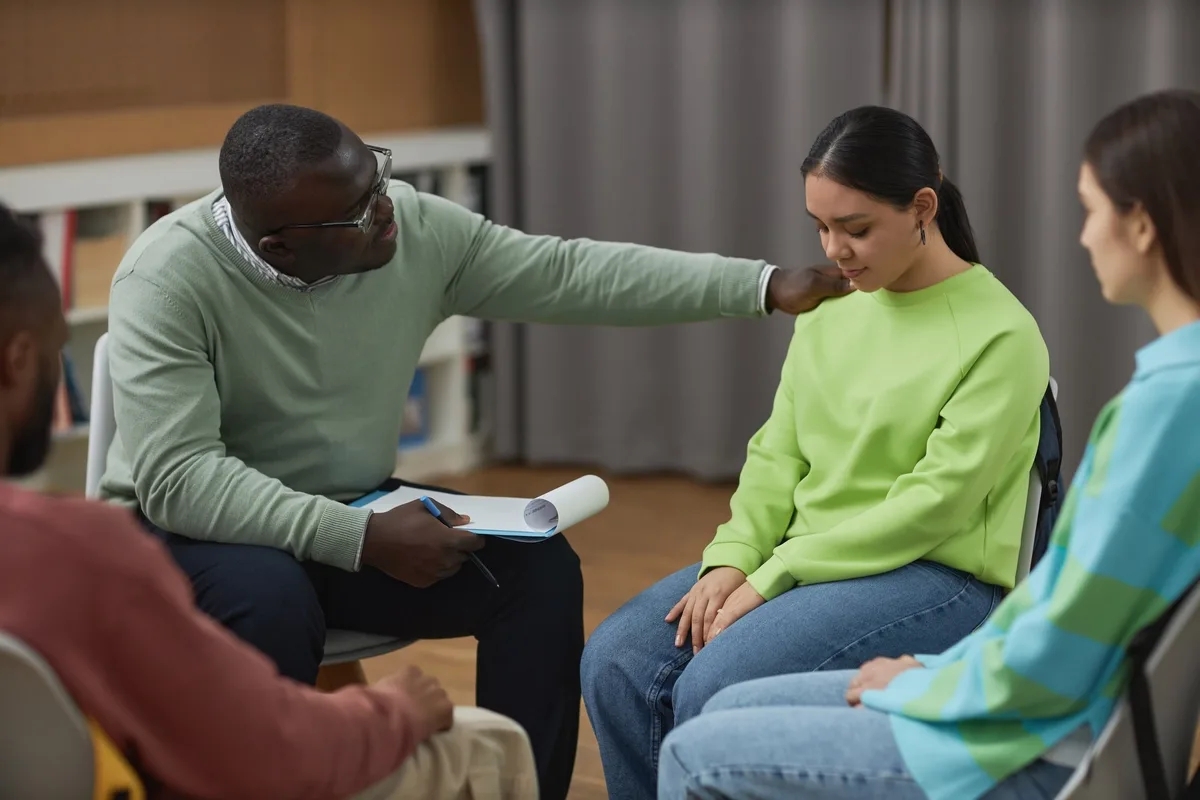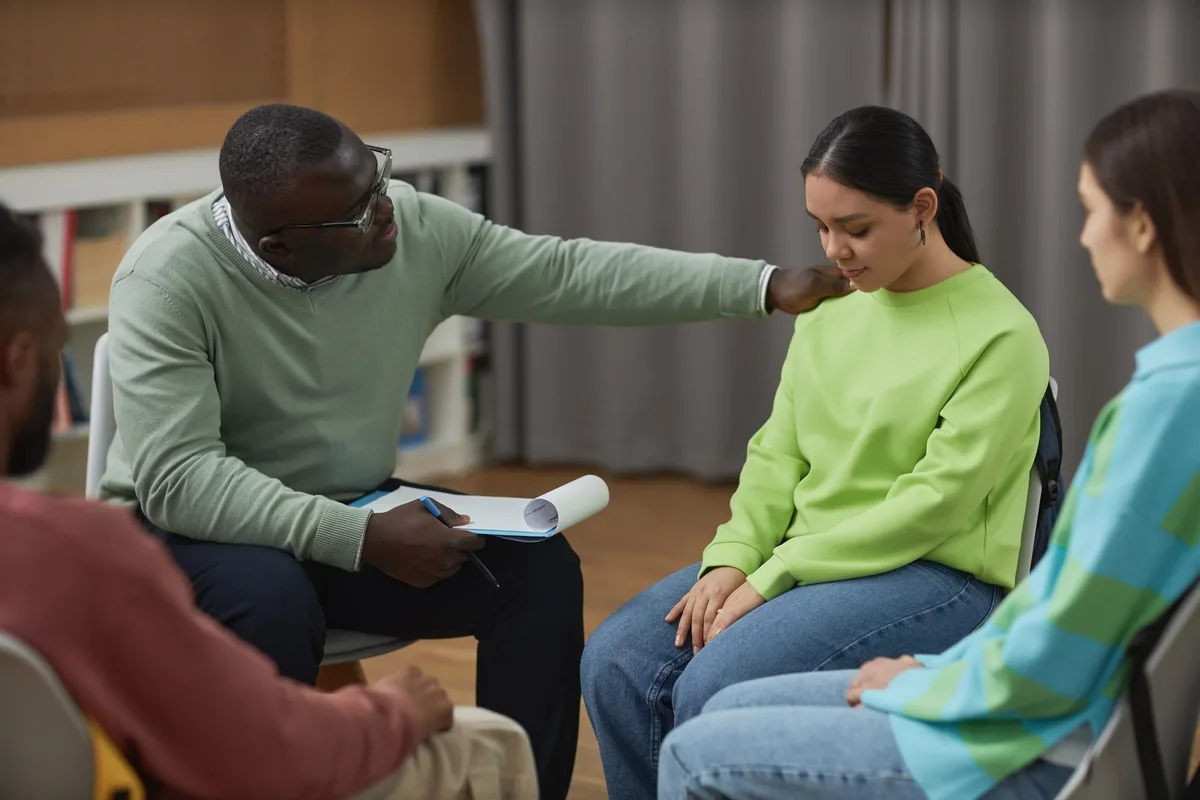24/7 Helpline:
(866) 899-221924/7 Helpline:
(866) 899-2219
Learn more about Benzo Rehab centers in McHenry County

Other Insurance Options

BHS | Behavioral Health Systems

Health Net

UnitedHealth Group

Absolute Total Care

Horizon Healthcare Service

Regence

Medical Mutual of Ohio

Coventry Health Care

Holman Group

Carleon

Health Choice

Access to Recovery (ATR) Voucher

Health Partners

EmblemHealth

Kaiser Permanente

AllWell

Lucent

ComPsych

Excellus

United Health Care

Bridges Counseling and DUI Services
Bridges Counseling and DUI Services is a private rehab located in Algonquin, Illinois. Bridges Couns...

Proactive Behavioral Services
Proactive Behavioral Services is a private rehab located in Algonquin, Illinois. Proactive Behaviora...

Pasadena Villa Outpatient Center – Raleigh
Pasadena Villa Outpatient Center–Raleigh is an integrative, 12 step focused drug and alcohol rehab f...

Inner Peace Psychological Services And Integrative
Inner Peace Psychological Services And Integrative is a private rehab located in Cary, North Carolin...

Carolina Partners Counseling Center
Carolina Partners Counseling Center is a private rehab located in Cary, North Carolina. Carolina Par...

Monarch
Monarch is a private rehab located in Cary, North Carolina. Monarch specializes in the treatment of ...

First Step Services
First Step Services offers adult and adolescent alcohol and drug counseling services located in Durh...









































A New Way of Life
A New Way of Life is a private rehab located in Cary, IL. A New Way of Life specializes in the treat...

Family Counseling Center – OE Hardin County Office
Family Counseling Center – OE Hardin County Office is a private rehab located in Huntley, Illinois. ...

Fellowship Health Resources
Fellowship Health Resources provides a substance abuse intensive outpatient program and a behavioral...

Carolina Partners
Carolina Partners is a private rehab located in Cary, North Carolina. Carolina Partners specializes ...

Insight Program – Raleigh
Insight Program – Raleigh is a private rehab located in Cary, North Carolina. Insight Program – Rale...

































































































































